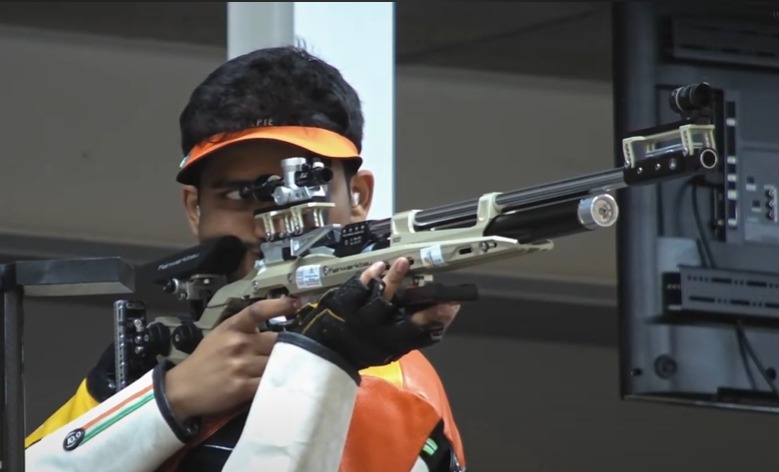
RevSportz Exclusive
Rudrankksh Balasaheb Patil is a name that has been in the limelight for some good two years now. The 20-year-old Indian sport shooter from Maharashtra, Thane, a World Champion in Cairo, won a quota for India for the Paris Olympics but missed out on the final team by a whisker in the trials.
He started the 2025 season with three medals, including a gold, in the ISSF Rifle/Pistol/Shotgun World Cup in Argentina and Peru, in the four events he participated in. His campaign started with a gold in the 10m Air Pistol Men’s event followed by a silver in the mixed events with Arya Borse – in Buenos Aires. In Lima, in the individual event, an unfortunate technical error forced him to opt out of the final and he finished 8th. Like in Argentina, Patil bagged a silver again, with Borse in the same event.
In this interview, Patil spoke about his campaign in South America, the youngsters in the team, the role of the federation and more.
Rohan Chowdhury: Welcome, Rudrankksh! You’ve been a stellar performer throughout, winning gold in Argentina, a silver with Arya Borse, and another silver in the mixed-team event in Lima. However, there was also that unfortunate technical error in the individual event. We’ll get to that, but first, congratulations on your performance. How would you describe the campaign in South America?
Rudrankksh Patil: Thank you so much. I’m really happy to have been part of the Indian contingent in Argentina and Peru. Right now, I’m still in Peru. I participated in four events and won three medals, which is a good start to the season. Of course, the performance could have been better, but I’m always working on improving myself.
Rohan: Let’s talk about the technical error that happened during the individual 10m air rifle event in Lima. Can you walk us through what happened and what was going through your mind?
Rudrankksh: Yeah, so basically, our rifles are made up of springs and screws, and when we travel, especially over long distances, the vibrations can cause the screws to loosen and the spring tension to either decrease or increase. It’s actually a fairly common issue. Sometimes the trigger stops working, or in some cases, the shot fires automatically the moment you load it.
Unfortunately, this happened to me on the exact day of the match. Normally, these things don’t occur during competition, but if they do and it happens during the preparation or sighting time, it’s manageable; we can fix it in two minutes. The problem is when it happens during the finals. At that point, there’s almost no time to rectify anything, and the shot is considered gone.
That’s exactly what happened, right after I loaded, the shot went off on its own. It was counted as a zero. It’s really unfortunate, but that’s how the sport is. Shooting is a very technical discipline, and sometimes, no matter how well-prepared you are, things like this are out of your control.
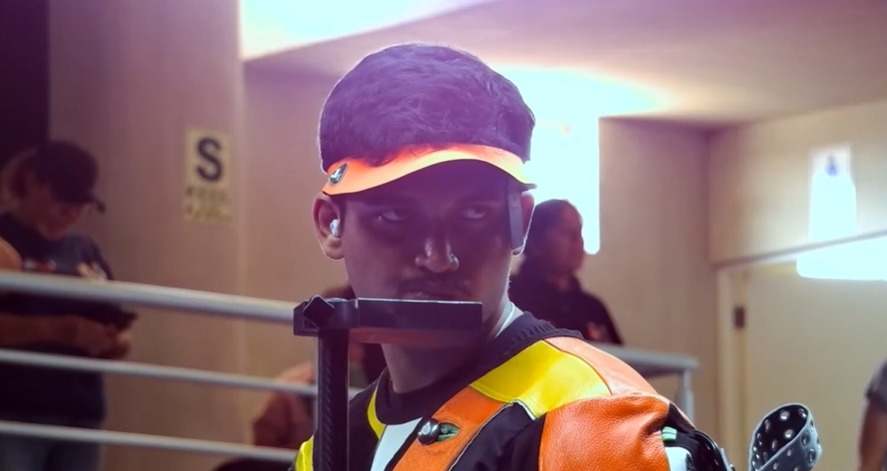
Rohan: Last year, you won a quota for the Paris Olympics but missed out on the final team by a whisker. Then you came back strong, prepared well and won three medals in South America. How was that process?
Rudrankksh: It’s been a long journey. 2024 was my first Olympic cycle, and I learned a lot, technically and mentally. Even though I didn’t make the Olympic team, I built strong mental resilience. I had some good performances and learned from the times I didn’t do well. That’s what I’m applying this season.
I’m 20 now and have been in the Indian team for almost six years, out of eight years of shooting. Half my life has been about this sport. So seeing my efforts pay off now is really satisfying. A lot of athletes work incredibly hard, but results don’t always come. I’m grateful that my hard work is bearing fruit, and I’m still focused on improving.
Rohan: If you analyse your performance in this World Cup phase in South America, what are the areas you think you need to improve?
Rudrankksh: Mental resilience is one thing I really worked on, especially after what happened in Lima. Coming back the next day was tough, but my friends and the support staff helped me stay motivated.
Technically, I’m still working on improving my scores. But in this sport, you can’t just chase scores… You have to focus on the process every day. One day, it clicks. I’m trying to get back to my rhythm and normal zone, and from there, I’ll build toward the upcoming competitions.
Rohan: You mentioned teammates — Arya Borse, with whom you won two medals. We had Suruchi Singh Inder in superb form; Simranpreet Brar, who won a silver on the final day. Thoughts on these youngsters who have performed brilliantly?
Rudrankksh: Though I have more experience than most of them, I’m still close in age. Arya and I competed as junior mixed-team partners in 2022 but missed a medal. This year, we played together three times — at the National Games and both World Cups — and won silver each time. We need to work on our coordination, but I’m happy I could be part of her first World Cup medal journey.
I don’t know the others, like Suruchi and Simranpreet, as well since we compete in different events. But I’m happy for their achievements. It’s great to see such talent coming up.
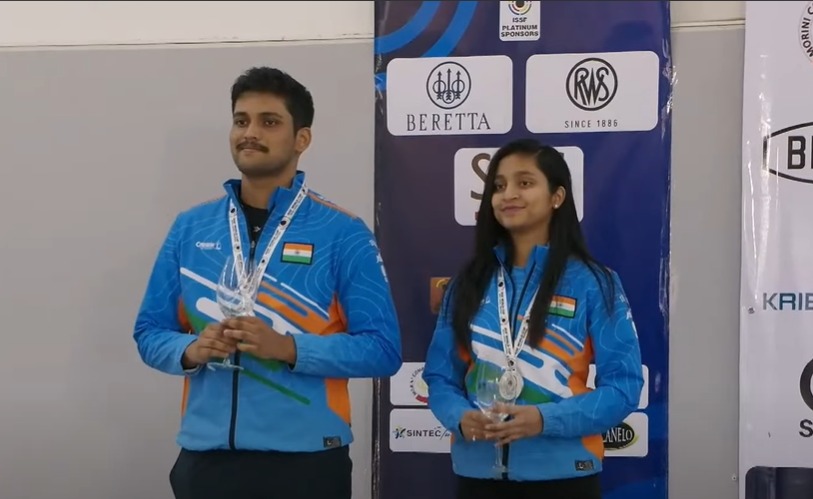
Rohan: The idea of this question is to understand the trial dynamic and the role of NRAI. See, we have Olympians who have missed out on the World Cup; there are players who have won quotas but haven’t got the final team call-up for the Olympics. So, help me understand the federation’s role in bringing up this huge pool of young talented shooters.
Rudrankksh: Trials are very competitive. Just because someone is an Olympian or a world champion doesn’t guarantee performance every day. An experienced athlete, to me, is someone who can handle any situation and still deliver a strong basic score.
When I entered the team, I challenged senior athletes. Now it’s the next generation doing the same. That’s the nature of sport. Personally, I still have a lot of potential to explore. I believe I can keep performing at a high level for the next 10 years, and I’ll make sure the youngsters have to work hard to catch up.
Rohan: Let’s talk about mental fitness. Shooting demands immense focus. What do you do to stay mentally sharp?
Rudrankksh: Yeah, so basically, over time I’ve realised that athletes go through different phases. Earlier, there was a strong belief that constant focus and intense meditation were the only ways to win medals. But I think that idea has changed now. At this stage, our scores are already built into us — we’ve shot those scores in training, we do it every single day.
The key now is mental health. If we’re not happy, if we don’t feel like picking up the gun, it might still work for a few competitions, but it’s not sustainable in the long run. You need to focus on recovery, mental peace and happiness. That’s where the real energy comes from — the energy you can use during competition.
It’s like climbing a mountain. You might be able to climb one with brute force, but if another one appears right after, it becomes really tough; unless you genuinely love climbing. That’s what I feel about sport. You have to love it. When you do, it helps take your focus to the next level.
If you approach it like a robot, doing the same thing every single day without breaks, your energy gets drained, and eventually, your focus disappears. But if you do it because you love it, if you allow yourself breaks, if you get up when you feel ready, you build that mental resilience. And sometimes, it’s also important to know when to let go. That’s the balance I’m trying to maintain right now, and I truly believe that’s what helps you in the long run.
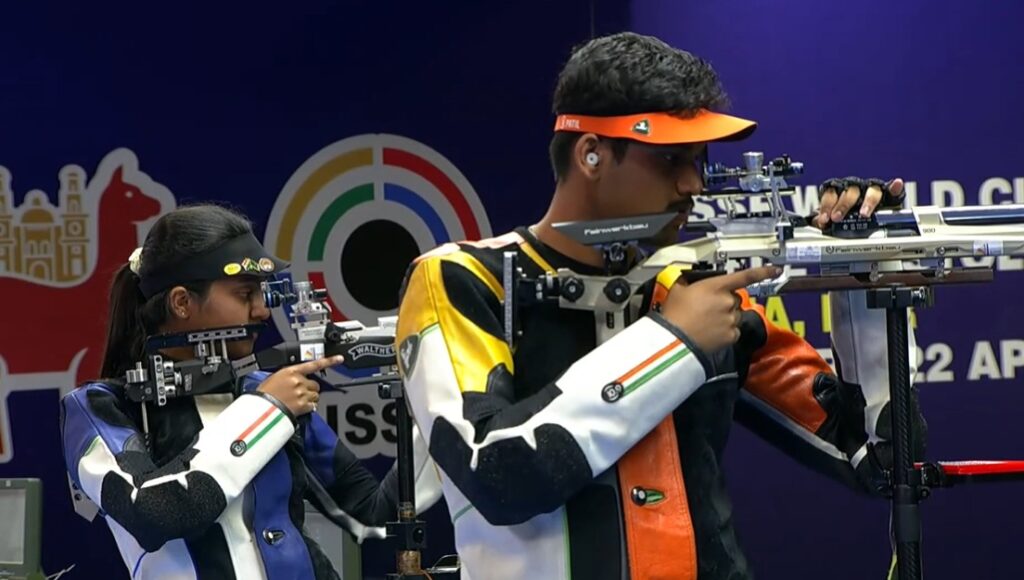
Rohan: As you mentioned ‘balance’, what’s your routine like outside of shooting?
Rudrankksh: I study, spend time with my family, play other sports, and help my brother with his academics. I also hang out with friends whenever I get the chance. I try to live a normal and social life whenever I’m not shooting because shooting already takes up most of my time.
Rohan: What are you studying right now?
Rudrankksh: I’m in my third year of a Bachelor of Arts programme.
Rohan: This leg of the World Cup is now over. What’s next?
Rudrankksh: First, I have my graduation exams just three days after I get home. After that, I’ll take a short break to recover mentally. Then I’ll start preparing for the World Championships. That’s my main goal for the year. I’ll focus on qualifying and preparing specifically for that, rather than exhausting myself with unnecessary events.
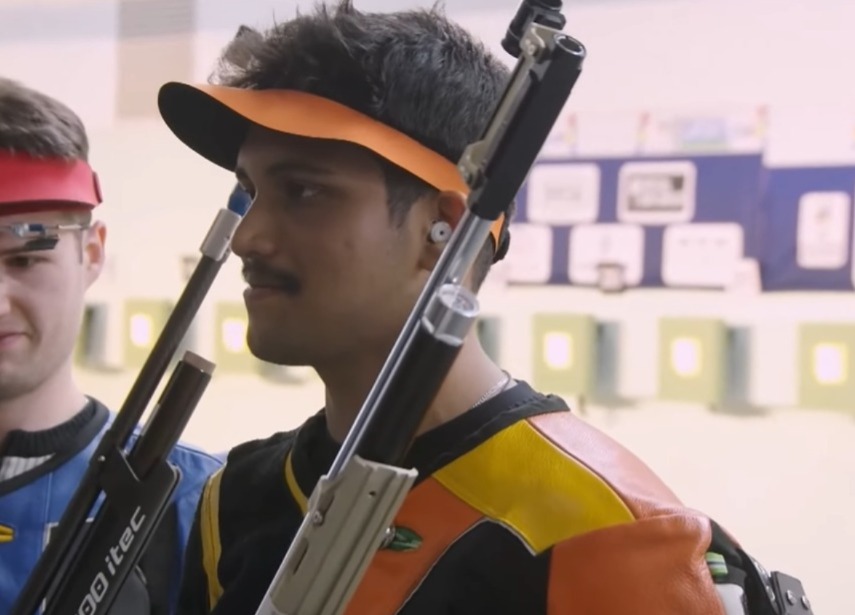
Rohan: Did you get to enjoy Argentina and Peru outside of the competition?
Rudrankksh: Yes, we explored a bit in Argentina. We wanted to visit (Lionel) Messi’s house, but unfortunately, there were riots, and it wasn’t safe. Still, we managed to visit gardens and try some local food. I also got to meet some old friends from the shooting circuit. That was really nice.
Rohan: Did you catch a football match in Buenos Aires?
Rudrankksh: No, we were there for the World Cup, so once that was done, we had to move on.
Rohan: It’s been wonderful speaking with you, Rudrankksh. You shared valuable insights, especially about trials and selection, something many people aren’t aware of. We hope to see you win many more medals and speak with us again soon.
Rudrankksh: Thank you so much. It was a pleasure.
🚨 #RudrankkshPatil Exclusive
“The technical error in Lima was unfortunate—but that’s the reality of a precision sport like shooting.” — @RudrankkshP explained.
The campaign in Argentina & Peru.
The @OfficialNRAI trials, shooting alongside #AryaBhorse, wanting to go to visit… pic.twitter.com/S4Bua0s845
— RevSportz Global (@RevSportzGlobal) April 23, 2025



